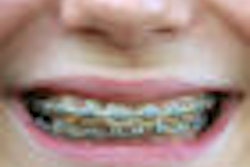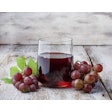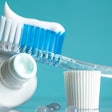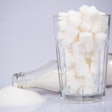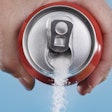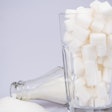
SAN FRANCISCO - Frustrated with patients who have rampant caries but won't give up their three cans of soda a day?
Unfortunately, the sugar problem is all too common these days. America's daily consumption of sugar has increased 20% in the last 35 years, with both adults and children consuming well above the recommended daily amount, according to Karen Davis, RDH, in a presentation Thursday at the California Dental Association (CDA) fall session.
Coming from a household where her mother sweetened their morning orange juice with half a cup of sugar, Davis was forced to take a "good, hard look" at the sugar content in everyday food due to a series of illnesses in her family.
“Direct your patients to xylitol.”
— Karen Davis, RDH
"It became a personal issue," she told the audience. "And as I talked to patients about it, I found that most people don't give it much thought at all."
The American Heart Association (AHA) has very stringent recommendations about how much added sugar (not sugar found naturally in fruits, vegetables, whole grains, or milk) people should consume each day, Davis noted. The AHA recommends that women consume no more than 6½ teaspoons (26 grams) and men no more than 9½ teaspoons (38 grams) of added sugar in a day.
Davis then showed the attendees how easy it is to exceed this limit. For example, an afternoon snack consisting of a can of Coke and three Milano cookies alone will take you over the recommended limit.
An exercise in which the attendees were required to guess the sugar content in many commercial cereals, candy bars, ice creams, and frozen foods yielded some surprising results.
For example, a well-known fat-free flavored yogurt beat out a popular brand of ice cream when it came to which had the higher sugar content. And a frozen food from a national restaurant chain had less added sugar than some diet frozen food options.
Davis's message: Teach your patient to be a label detective -- especially those with systemic conditions such as diabetes and heart disease.
Smarter choices
As she guides patients away from consuming sodas, Davis finds many choose to consume diet drinks because they think it's a healthier option. But diet soda is not always a good choice because a lot of them have citric acid, which can also cause caries, she noted.
One change Davis recommends is looking at sugar alternatives with low glycemic indexes, such as sugar alcohols such as maltitol, sorbitol, xylitol, lactitol, and isomalt.
Although all of these have their own particular qualities, Davis's favorite is xylitol. Xylitol is as sweet as sugar, noncariogenic, and heat-safe (can be used for cooking.). Also, unlike some of the other sugar alcohols that can become cariogenic if kept in the oral cavity for an extended period of time, xylitol does not change its chemical property if kept in the mouth for a long period of time.
Some xylitol products recommended by Davis include XyliMelts (OraHealth), which can be used by patients with dry mouth to stimulate salivary flow. She also recommends TheraMints (3M ESPE) and noted that Oral BioTech's CariFree.com site offers a number of kid-friendly xylitol products.
"Direct your patients to xylitol," Davis said. But make sure the products are 100% xylitol and do not have other sweeteners mixed in, she cautioned.
Davis concluded her session with tips on how to direct patients toward less sugar and better oral health. Dental practitioners can recommend that patients do the following:
- Read labels and decide wisely.
- Set discretionary limits for calories consumed on a daily basis (reduce sugar sweetened drinks and foods).
- Substitute sugar alcohols for sugar.
- Count sugar grams throughout the day.
- Use xylitol gums and mints after meals.
- Prepare food with fresh herbs to increase satisfaction with meals.
- Enjoy the delectable in moderation.
- Increase physical activity.
- Drink more water.
And what about patients who have a sweet tooth that simply won't quit?
"Tell them that a cupcake does not taste any better after the first three bites," she advised with a chuckle.





